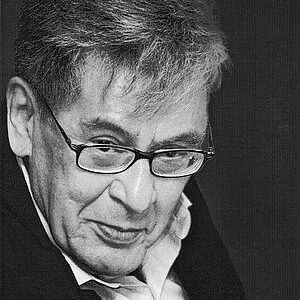
José Emilio Pacheco (1939-2014) was the leading Mexican poet of the second half of the twentieth century who, In his later years, was visiting Professor of Literature at the University of Essex. Also a distinguished translator, essayist, novelist and short-story writer, he received all of the major literary prizes given in the Spanish-speaking world, including the Premio Cervantes (2009), Premio Reina Sofía (2009), Premio Federico García Lorca (2005), Premio Octavio Paz (2003), Premio Pablo Neruda (2004), Premio Ramón López Velarde (2003), Premio Alfonso Reyes (2004), Premio Nacional de Literatura José Fuentes Mares (2000), National José Asunción Silva Poetry Award (1996), and Premio Xavier Villaurrutia. Collections of his work in English translation include: Selected Poems, trans. George McWhirter (New Directions, 1987), Battles in the Desert and Other Stories, trans. Katherine Silver (New Directions, 1987), and City of Memory and Other Poems, trans. Cynthia Steele and David Lauer (City Lights, 2001). His collected poems are available in Spanish as Tarde o temprano (Poemas 1958-2009) (Fondo de Cultura Económica, 2009). Pacheco’s poetry is characterized by its precision, understatement, erudition, and preoccupation with humanity’s destructive tendencies toward both the natural world and itself.

Cynthia Steele is Professor Emerita of Comparative Literature at the University of Washington, Seattle. Her translations include Inés Arredondo, Underground Rivers and Other Stories (U of Nebraska P, 1996), José Emilio Pacheco, City of Memory and Other Poems (City Lights, 2001, with David Lauer), and María Gudín, Open Sea (Amazon Crossings, 2018). Her versions of other poems by Pacheco have been published in TriQuarterly, Delos, Agni and Prism. Those of other Latin American poets have appeared in various journals, including Michigan Quarterly Review, Washington Square Review, Southern Review, New England Review, and ANMLY.
- Blockbuster


The old family house has a sign: “For sale
as a vacant lot.” Before long
it will be another Burger King, Domino’s Pizza or Blockbuster.
The parents built it as newlyweds, so young.
Their daughters and sons were born and grew up.
Later they moved away. Because the essence
of family life is final dispersion.
Once the home was dissolved, the old parents died
and the house is for sale as a vacant lot.
Within a few weeks
they’ll rent videos about love and horror in this Blockbuster.
No one will notice the other drama:
the families coming together and falling apart,
being born, dying, and in between
immense life, always wounding and leaving so soon.
And the dust into which all houses turn.
José Emilio Pacheco
translated by Cynthia Steele
2. Limbo
It’s impossible to open the window.
It’s sealed. It has a device
to prevent suicides and keep the chaos out.
The climate control regulates the tired air
purified by another machine.
The picture window functions as a magnifying glass.
It all looks flawless.
But today the power went out
so there is no air and the water won’t rise.
The fishbowl of the thirtieth floor
(or the twentyninth: there is no thirteenth),
up near heaven,
was limbo.
The heat generated
has turned it into a third-world shack,
into an oil drum
where hell is boiling over.
José Emilio Pacheco
translated by Cynthia Steele
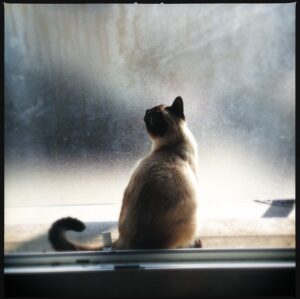

3. Demolition
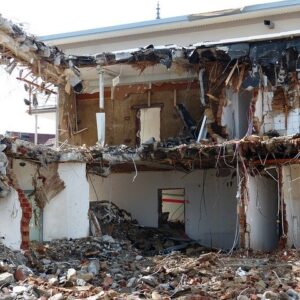
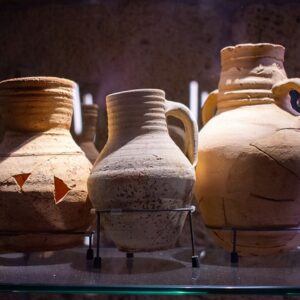

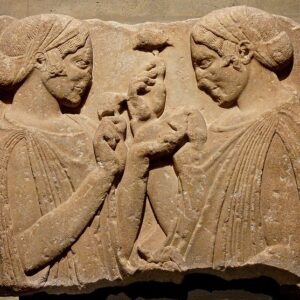

They’re tearing down the house in ruins,
and when it’s too late to save it, it turns out
to have been a colonial jewel, crushed
by the profit motive. They added on
“modern,” “functional” absurdities.
The most poignant or alarming part,
depending on how you look at it,
is finding under the patio where they kept
the delivery trucks
another patio, this one ancient,
with a fountain in pieces
and shards of vases and plates.
And thus everyday objects
are not always destroyed or transformed.
A few remain in some place
where no one looks again or remembers.
Perhaps on a third level
(in the ancient city, it wouldn’t surprise me)
they’ll find the shattered bones
of those who ate off these plates
and listened to time being liquefied
in the fountain’s waters.
If I pause for an instant on them,
on those forever undiscovered, anonymous lives,
I realize that this day, too, must someday be
remote prehistory.
And in the future Pompey,
our city of right now,
another excavation team
will rescue the humble things
that we spent our sad lives using up
–without stopping to think–
that, in the long run, they too will be remnants,
ruins of the inconceivable immemorial.
José Emilio Pacheco
translated by Cynthia Steele
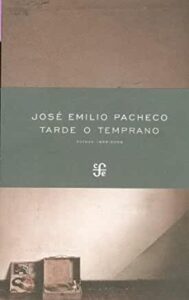
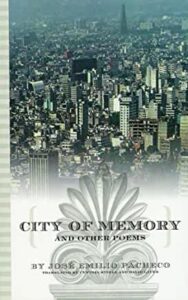
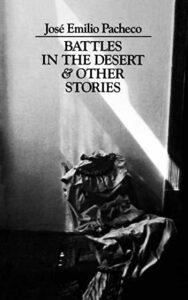
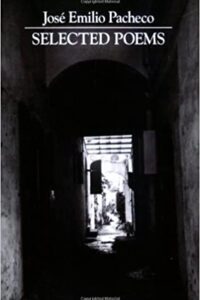
- Blockbuster


La vieja casa familiar tiene un letrero: “Se vende
como terreno.” Dentro de poco
será otro Burger King, Domino’s Pizza o Blockbuster.
La edificaron los padres, recién casados, muy jóvenes.
Nacieron y crecieron las hijas y los hijos.
Más tarde se apartaron. Porque la esencia
de la vida en familia es la final dispersión.
Ya disuelto el hogar, los viejos padres se mueren
y la casa se vende como terreno.
Dentro de pocas semanas
alquilarán videos de amor y terror en este Blockbuster.
Nadie reparará en el otro drama:
las familias que se hacen y se deshacen,
el nacer, el morir y en medio
la inmensa vida que hiere siempre y se va muy pronto.
Y el polvo en que terminan todas las casas.
José Emilio Pacheco
2. Limbo
Es imposible abrir la ventana.
Está sellada. Contiene un dispositivo
contra el suicidio y contra el caos de afuera.
El clima artificial regula el aire cansado
que purifica otra máquina.
El ventanal funciona como vidrio de aumento.
Todo parece impecable.
Pero hoy se fue la electricidad
y por tanto no hay aire ni sube el agua.
La pecera del piso treinta
(o veintinueve: no hay trece)
cerca del cielo,
fue el limbo.
Con el calor generado
se ha convertido en choza del tercer mundo.
Se ha vuelto paila de aceite
en la que hierve el infierno.
José Emilio Pacheco


3. Demolition
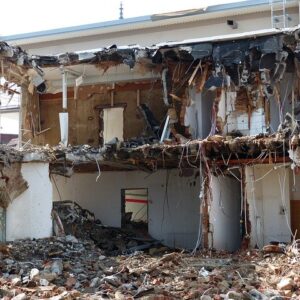
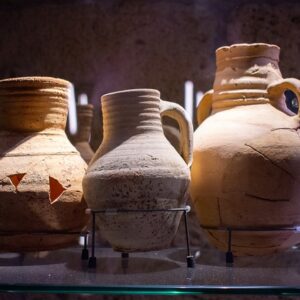


Están echando abajo la casa en ruinas.
Y cuando ya es muy tarde para salvarla resulta
que era una joya colonial, aplastada
por el afán de lucro. Añadieron
adefesios “modernos” y “funcionales.”
Lo más conmovedor o lo más alarmante,
según sea vea,
es hallar bajo el patio en donde guardaban
las camionetas de reparto
otro patio, esta vez antiguo,
con una fuente en pedazos
y fragmentos de platos y de vasijas.
Así pues, los objetos diarios
no siempre se destruyen ni se transforman.
Unos cuantos se quedan en un lugar
que nadie vuelve a ver ni recuerda.
Quizá en un tercer nivel
(en la antigua ciudad no es raro)
estarán los huesos deshechos
de quienes comieron en estos platos
y escucharon el tiempo que se licuaba
entre las aguas de la fuente.
Si me detengo un instante en ellos,
en para siempre ignotas vidas anónimas,
advierto que también este día se ha de volver algún día
la más remota prehistoria.
Y en la Pompeya futura,
nuestra ciudad de ahora mismo,
otro equipo de excavación
rescatará las cosas humildes
que gastamos gastando la triste vida
–sin pensar nunca
en que también serán a largo plazo vestigio,
ruinas de lo impensable inmemoriable.
José Emilio Pacheco